ALSO BY TIMOTHY KELLER
The Reason for God: Belief in an Age of Skepticism
The Prodigal God: Recovering the Heart of the Christian Faith
Counterfeit Gods: The Empty Promises of Money, Sex, and Power, and the Only Hope That Matters
Generous Justice: How Gods Grace Makes Us Just
Jesus the King: Understanding the Life and Death of the Son of God
The Meaning of Marriage: Facing the Complexities of Commitment with the Wisdom of God
Every Good Endeavor: Connecting Your Work to Gods Work
Walking with God through Pain and Suffering
DUTTON
Published by the Penguin Group
Penguin Group (USA) LLC
375 Hudson Street
New York, New York 10014

USA | Canada | UK | Ireland | Australia | New Zealand | India | South Africa | China
penguin.com
A Penguin Random House Company
Copyright 2013 by Timothy Keller
Penguin supports copyright. Copyright fuels creativity, encourages diverse voices, promotes free speech, and creates a vibrant culture. Thank you for buying an authorized edition of this book and for complying with copyright laws by not reproducing, scanning, or distributing any part of it in any form without permission. You are supporting writers and allowing Penguin to continue to publish books for every reader.
All Bible references are from the New International Version (NIV), unless otherwise noted.
The chapters in this book were published individually in slightly different forms as the Encounters with Jesus eSeries.
 REGISTERED TRADEMARKMARCA REGISTRADA
REGISTERED TRADEMARKMARCA REGISTRADA
LIBRARY OF CONGRESS CATALOGING-IN-PUBLICATION DATA
has been applied for.
ISBN 978-0-698-13834-6 (eBook)
While the author has made every effort to provide accurate telephone numbers, Internet addresses, and other contact information at the time of publication, neither the publisher nor the author assumes any responsibility for errors or for changes that occur after publication. Further, the publisher does not have any control over and does not assume any responsibility for author or third-party websites or their content.
Version_1
To the ministers and staff of the campus ministries who brought me to faith and also nurtured the faith of my sons and their wives, in particular those working in
Reformed University Fellowship in the United States
and
Universities and Colleges Christian Fellowship,
the successor to Inter-Varsity Fellowship, in the United Kingdom.
C ONTENTS
O NE
T WO
T HREE
F OUR
F IVE
S IX
S EVEN
E IGHT
N INE
T EN
I NTRODUCTION
I was raised in a mainline Protestant church, but in college I went through personal and spiritual crises that led me to question my most fundamental beliefs about God, the world, and myself.
During those years I fell in with some Christians who were active in small-group Bible studies. In these groups the leader would not take the role of teacher or instructor; instead he or she would facilitate the entire groups reading and interpretation of the chosen Bible text. The ground rules were simple but crucial for the integrity of the exercise. The Bible was to be given the benefit of the doubtthe text was to be treated as reliable and its authors as competent. No one persons interpretation was to be imposed on the passage; we were to come to conclusions as a group. We sought to mine the riches of the material as a community, assuming that together we would see far more than any individual could.
Before I was even sure where I stood in my own faith, I was asked to lead a group and was provided with a set of Bible studies entitled Conversations with Jesus Christ from the Gospel of John by Marilyn Kunz and Catherine Schell. It covered thirteen passages in the book of John where Jesus had conversations with individuals. Those studies helped my group uncover layers of meaning and insight that astonished us all. Moving through these accounts of Jesus life, I began to sense more than ever before that the Bible was not an ordinary book. Yes, it carried the strange beauty of literature from the remote past; but there was something else. It was through these studies of encounters with Jesus that I began to sense an inexplicable life and power in the text. These conversations from centuries ago were uncannily relevant and incisive to meright now. I began to search the Scriptures not just for intellectual stimulation but in order to find God.
I was taught that patience and thoughtfulness were keys to insight. At one point I went to a conference for Bible study leaders. Ill never forget one of the exercises. The instructor gave us one verse, Mark 1:17 (ESV): And Jesus said to them, Follow me, and I will make you become fishers of men. She asked us to spend thirty minutes studying the verse (which, naturally, was taken from an encounter with Jesus). She warned us that after five or ten minutes we would think we had seen all there was to see, but she challenged us to keep going. Write down at least thirty things you see in or learn from the verse. Ten minutes into the exercise I was finished (or so I thought) and bored. But I dutifully pushed on and kept looking. To my surprise there was more. When we all returned she asked us to look at our list and circle the most penetrating, moving, and personally helpful insight. Then she asked us a question: How many of you discovered your best insight in the first five minutes? Raise your hands. No hands. How many after ten minutes? One or two hands. Fifteen? More. Twenty? A large number now raised their hands. Twenty-five? Many of us now raised our hands, smiling and shaking our heads.
Those initial experiences with patient, inductive study of the biblical text changed my spiritual life. I discovered that if I spent the time and assumed the proper attitude of openness and trust, God spoke to me through his Word. They also set me on my vocational course by giving me the tools to help other people hear Gods Word through the Bible. For nearly forty years Ive been teaching and preaching the Bible for people, but the basis for every talk, lecture, or sermon has always been what I learned in college about how to sit with a text and carefully plumb its depths.
I still accept the authority of all of the Bible, and love learning and teaching from all of it. But I first felt the personal weight of the Bibles spiritual authority in the Gospels, particularly in those conversations Jesus had with individualsthe skeptical student Nathanael, Jesus bewildered mother at the wedding feast, the religion professor who came at night, the woman at the well, the bereaved sisters Mary and Martha, and many others.
I suppose you could say that many of my own formative encounters with Jesus came from studying his encounters with individuals in the Gospels.
SEVERAL YEARS AGO , I wrote a book called The Reason for God: Belief in an Age of Skepticism. As a pastor in New York City for many years, Ive always appreciated skeptics arguments and the invaluable role they play in defining and clarifying what is unique about Christianity. It bothers me when Christians dismiss these questions glibly or condescendingly. I remember very clearly the doubts and questions I brought to those Bible study groups back in college and how grateful I was to have them taken seriously. Ive seen that taking the time and effort to answer hard questions gives believers the opportunity to deepen their own faith while creating the possibility that doubtful people may become open to the joy of Christianity.

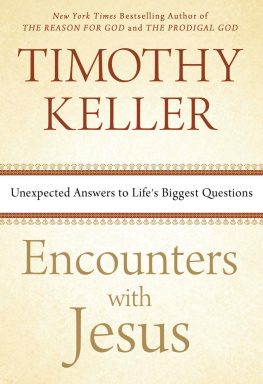
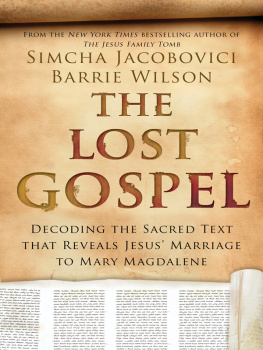
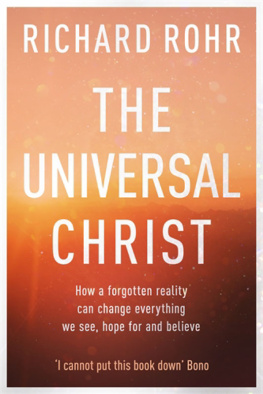
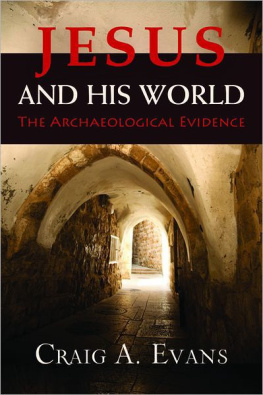



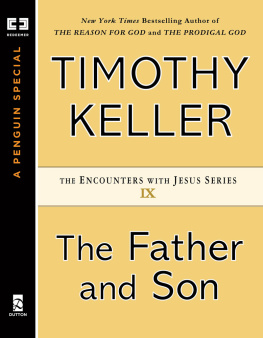
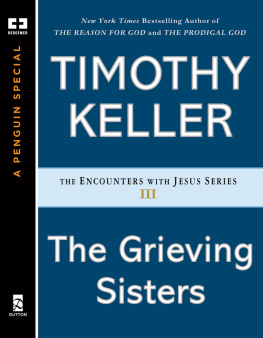
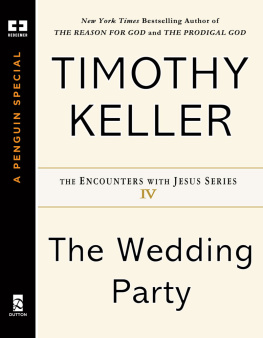
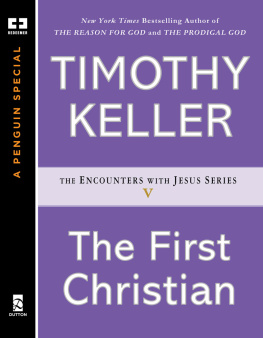
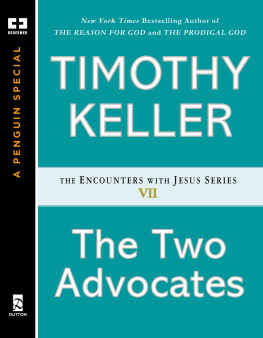
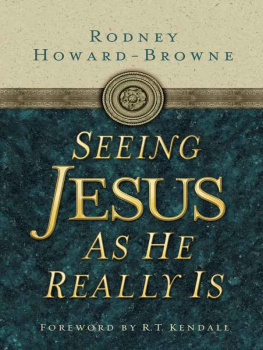

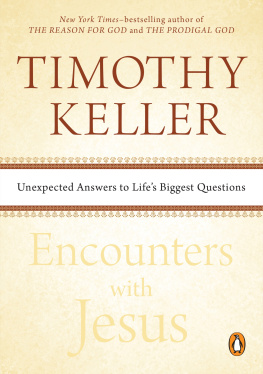




 REGISTERED TRADEMARKMARCA REGISTRADA
REGISTERED TRADEMARKMARCA REGISTRADA